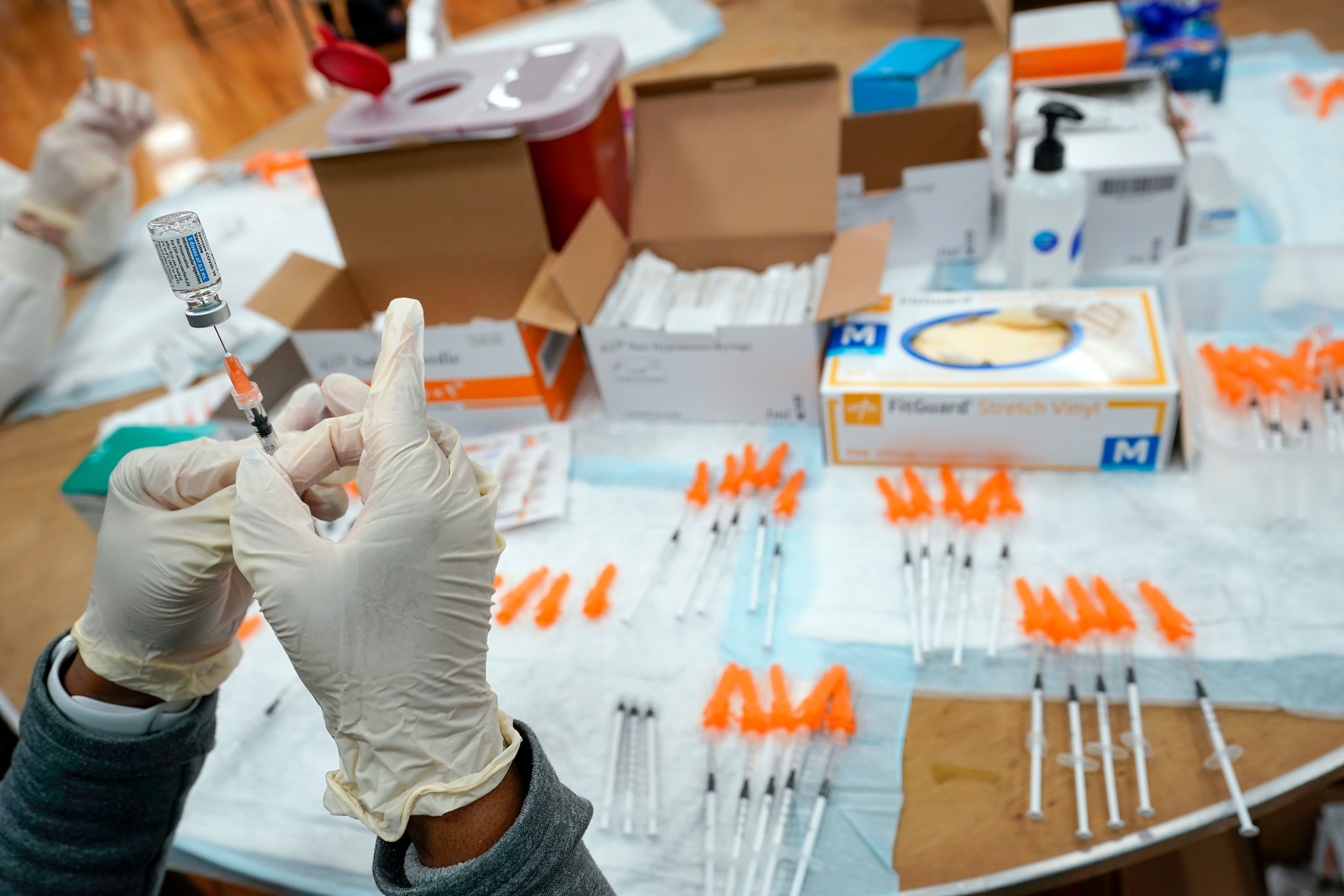Tweaked COVID boosters in US must target newer omicron types
U.S. regulators are telling COVID-19 vaccine makers to tweak any booster doses intended for fall so they protect against the newest omicron relatives

Your support helps us to tell the story
From reproductive rights to climate change to Big Tech, The Independent is on the ground when the story is developing. Whether it's investigating the financials of Elon Musk's pro-Trump PAC or producing our latest documentary, 'The A Word', which shines a light on the American women fighting for reproductive rights, we know how important it is to parse out the facts from the messaging.
At such a critical moment in US history, we need reporters on the ground. Your donation allows us to keep sending journalists to speak to both sides of the story.
The Independent is trusted by Americans across the entire political spectrum. And unlike many other quality news outlets, we choose not to lock Americans out of our reporting and analysis with paywalls. We believe quality journalism should be available to everyone, paid for by those who can afford it.
Your support makes all the difference.U.S. regulators told COVID-19 vaccine makers Thursday that any booster shots tweaked for the fall will have to add protection against the newest omicron relatives.
The Food and Drug Administration said the original vaccines would be used for anyone still getting their first series of shots. But with immunity waning and the super-contagious omicron family of variants getting better at dodging protection, the FDA decided boosters intended for fall needed an update.
The recipe: Combination shots that add protection against the omicron relatives named BA.4 and BA.5 to the original vaccine. Those mutants together now account for just over half of new U.S. infections.
It's still a gamble as there's no way to know if an omicron relative still will be a threat as cold weather approaches or if a newer mutant will take its place. And the current Pfizer and Moderna vaccines still offer strong protection against COVID-19's worst outcomes as long as people have gotten already recommended boosters.
But the combination approach, what scientists call “bivalent” shots, would allow the boosters to retain the proven benefits of the original vaccine while adding to its breadth of protection. It’s a common vaccine strategy: Flu shots, for instance, can protect against four influenza strains and are tweaked annually depending on what's circulating.
The FDA’s decision comes after its scientific advisers earlier this week recommended that any boosters for a fall campaign should contain some version of omicron -- but left undecided whether it should be the omicron mutant that caused last winter’s surge or the genetically distinct relatives that have replaced it.
Pfizer and Moderna already were brewing and testing boosters updated against the first omicron mutant in anticipation of an October rollout. They found adding the extra protection was safe — and spurred production of more omicron-fighting antibodies than just getting another dose of today’s vaccine.
Pfizer had begun work on another experimental dose to target the newer strains the FDA ultimately settled on.
“We’re continuing to collect more data from our study on BA.4/5 and will be in touch as soon as we are ready to submit,” Pfizer spokeswoman Jerica Pitts said in an emailed message.
Moderna told FDA’s advisers that switching to the even newer strains now circulating might delay its booster update another month. Moderna didn’t immediately respond to requests for comment Thursday.
The FDA’s order doesn’t guarantee that those combo shots would be offered in the fall. Manufacturers still have to provide key data before the agency decides whether to authorize modified boosters -- and the Centers for Disease Control and Prevention then would have to decide how they’re used.
For now, an all-important first booster of current vaccine already is urged for all Americans age 5 and older. People 50 and older are eligible for a second booster. With omicron, authorities say the shots' protection against COVID-19 hospitalization, while still robust, has slipped some in older adults and a second booster can help restore it.
___
The Associated Press Health and Science Department receives support from the Howard Hughes Medical Institute’s Department of Science Education. The AP is solely responsible for all content.